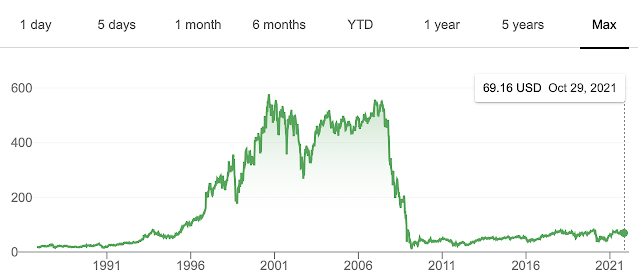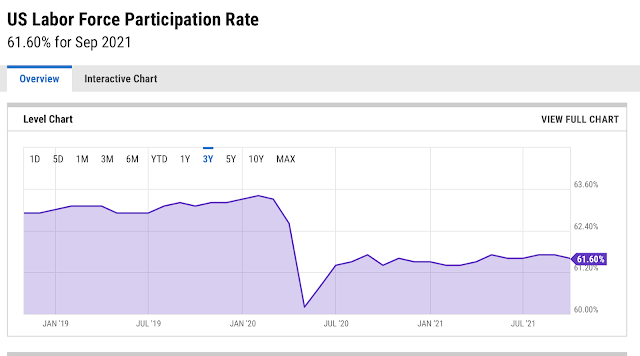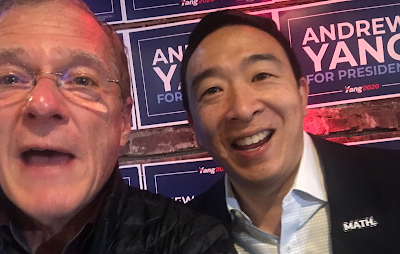A bid of "One No Trump" means something in the game of Bridge.
It is a signal to a partner and opponents of having a powerful hand. It forces partners and opponents to take action.
Manchin signaled:
Back the hell off, Bernie. And stay out of West Virginia. Or else.
Today's blog is about Manchin, bidding in the card came of Bridge, and guns on the sets of movies. It is all signaling.
Politics is carried out with body language, both between the candidate and voters, and also between political actors. People who play the card game of Bridge understand that the bidding to find the right fit and contract to win a hand involves coded signals, where a bid implies far more than it says.
Bernie Sanders took a provocative act. He thought to increase the political pressure on Manchin by authoring an op-ed in the largest newspaper in West Virginia. He mentioned Joe Manchin by name, saying he was stopping West Virginians from getting what they wanted and needed. In Bridge, that was an opening bid: "One Club." It means Bernie wants to make a deal and wants to know what you are going to do about it.
Manchin responded by words: “I will not vote for a reckless expansion of government programs. No op-ed from a self-declared Independent socialist is going to change that.” This exchange gives Manchin more flexibility going forward. The words position Manchin in opposition to Sanders, which is good and necessary in West Virginia.
But Manchin's response showed that the pressure on him had become too intense. Manchin has more power if he is seen to be irascible, driven by emotion, maybe impulsive, maybe angry. Manchin needed something tangible, a warning shot.
Manchin used Rolling Stone reporter David Corn, done as a "scoop," by a sole reporter, reporting a rumor. Manchin would have deniability and ambiguity. It would be a threat, put out there to lurk. In a movie it would be the camera lingering for a full second on a gun, sitting on a table.
Pow! Crisis! The implications of this are enormous for Biden, for Democrats, for progressive policies generally.
Manchin immediately denied the story he placed, calling it "bullshit." (Gun? What gun? I didn't even know there was a gun in the room!) Manchin is signaling he was a Democrat and wanted to be a Democrat.
David Corn stood by the story, saying Manchin was talking about leaving and had thought through plans. Manchin adjusted. It was just talk, he said.
We just watched a performance. It wasn't scripted, but each party knew how it would play out. Both won. Corn was a guy in the know. Manchin made his veiled threat. In a movie it would be a second look at the gun. Perhaps a teenage son would enter the room, idly pick up it up, the protagonist would notice and say to "put it back. It's loaded. It's dangerous. Someone could be killed." The gun would have moved from backdrop to a part of the action.
Manchin's is still a "No Trump" bid, and would caucus with Democrats, he said, but added that if he were thought an embarrassment to Democrats--too moderate--as a courtesy to his friends he would leave the party. This is an open request for some love, mixed with his power play. Don't you love me? I want to be in the Democratic tent, so define it to include me, please.
In the card game of Bridge, "One No Trump" means a strong hand. Manchin was sending message that criticism of him addressed to West Virginians angered him. Sanders went too far.
Now Democrats know. In politics and in Bridge, one can only bid "One No Trump" like this once. The threat to leave the Democratic Party cannot become habitual or else it becomes an empty bluff. In this performance with David Corn, Manchin attempted to preserve for another time use of the overt threat. Corn misunderstood me, he said. And besides, he wouldn't be leaving in an angry huff. It wasn't a breakup. It was a request for reconciliation--but on his terms. I don't want Democrats to be embarrassed by me. Tell me I'm OK.
As with the gun in the movie, we got the message. The next time the protagonist touches the gun he might be making an overt threat: Do it my way, or else! Or maybe it will be too late, and he will use the gun to shoot the Democratic Party.
[Note: people wishing to subscribe to the blog and get "home delivery" by email can go to: https://petersage.substack.com Enter your email address. The blog is free and always will be.]






























